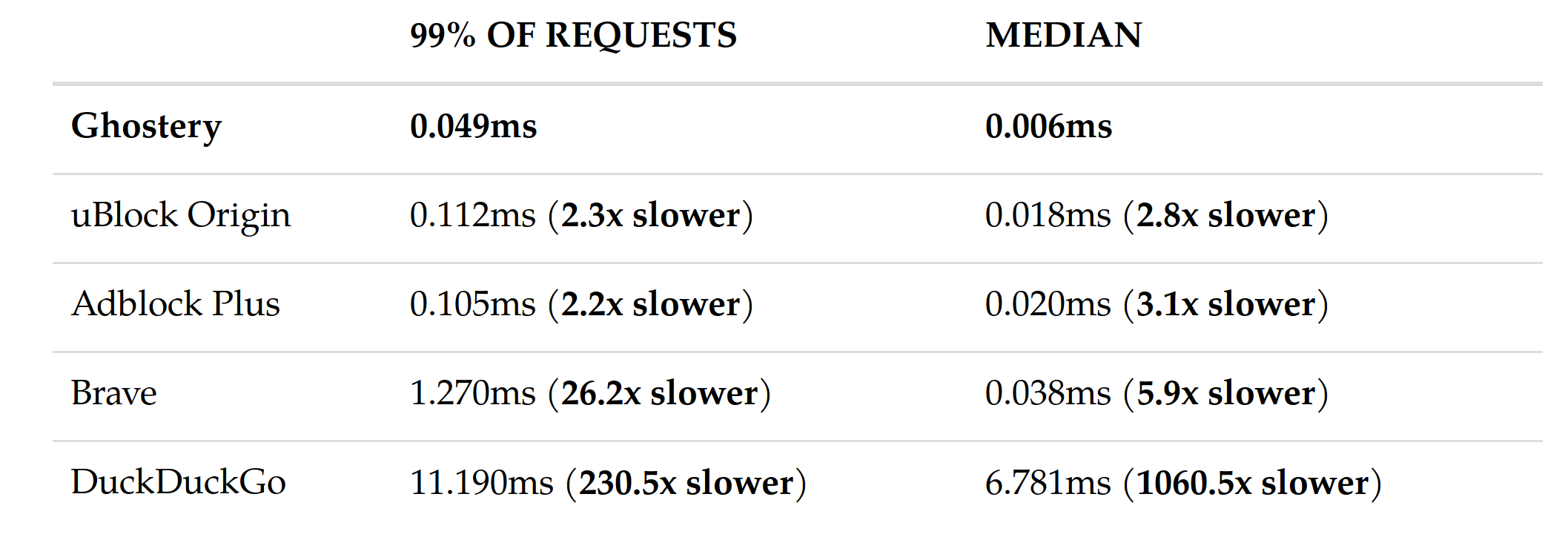Cliqz 1.35 is just being released as I write these lines and there is a lot to talk about in there: performance, more privacy, more polish. Let me share a few of the things that make me excited!
Privacy
There is continuous work to make sure Cliqz users always get the best privacy protection. In this release, there were three major improvements when it comes to privacy: human proxy network, a more efficient adblocker and better cookie retention policies.
Human Proxy Network (or, HPN), allows our users to stay anonymous when the browser contacts our backend (e.g.: for search or telemetry). This is the heart of our privacy by design approach, where you don’t even need to trust us to not do bad things: we simply don’t know anything personal about you. In this case, we now use a third-party VPN provider to also hide any network-level identifiers like IPs. We were already providing this protection before but we were operating the network of proxies ourselves. What I’m especially excited about is that now, there is no way Cliqz can learn anything about who you are using your IP (because of the third-party VPN relaying the messages); and there is also no way the third-party VPN provider can learn anything about you, because all messages are encrypted client-side!
Adblocker. We wrote about it recently in our performance study in the context of Manifest v3; Cliqz has the fastest and most memory efficient adblocker around and we are very proud of it. In this release we made sure that the latest improvements are included in the browser: blocking ads was never faster!

- Better cookies retention policies. We’re constantly fine-tuning our Anti-tracking as well as cookies retention policies. In a nutshell, we make sure that cookies cannot be used to track you by limiting their life-time depending on if they are needed for a service/website you are using or not.

Performance
We’re pushing super hard for our mobile products to offer the best possible experience even on slow devices. This means that usability, privacy protection and performance need to be great. There was a lot of work on these aspects in the last few months and because most of our core features share the same codebase across products, this impacts positively Cliqz desktop browser as well.
Faster URL parsing. To make sure no identifiers or ads slip through when you browser the web, Cliqz needs to analyze and filter a lot of URLs (to load a single page, it can go up to hundreds of network requests). Because this represents a lot of work, it was a good candidate for optimization. My co-worker sammacbeth did a fantastic job and was able to replicate the API of the native URL parser provided by the browser: except it’s now 4-5x faster. This means users get the same great privacy protection, but the browser sweats less for it!
Along those lines, we made sure that the processing of requests in the extension (not just parsing the URLs) is as fast as possible. We removed lots of friction so that when an ad needs to get blocked, or a fingerprint needs to be removed, it happens as fast as possible and more resources can be dedicated to load pages faster. This also greatly improves the experience on mobile!
What Else?
There were a lot of other changes to polish the overall Cliqz experience. For example: the weather smart Cliqz is now… much smarter and will display very detailed information about the forcasts (temperatures, wind, etc.)!

The estimation of time saved on Freshtab now takes into account the time saved when using Cliqz results directly in the dropdown instead of going to a search result page. This comes as an addition to the time saved by blocking ads or trackers.

What’s Next?
I am also super excited with the changes coming to mobile. We’ve been doing a lot of performance work to ensure that our mobile browser can run at full speed while enabling all privacy protections, even on very slow devices (in fact, we’re even more aggressive when blocking ads and trackers!).
In the next release, we have more coming: the infrastructure distributing adblocker rules has been revamped and allows most of the heavy lifting of parsing the rules and initializing the engine to be performed on the backend, which means much faster updates for clients as well as drastically reduced data usage (we’re talking of at least one order of magnitude less)! Stay tuned.